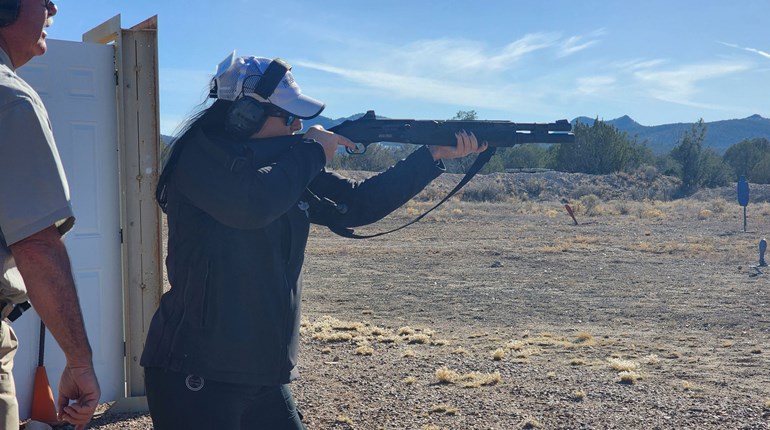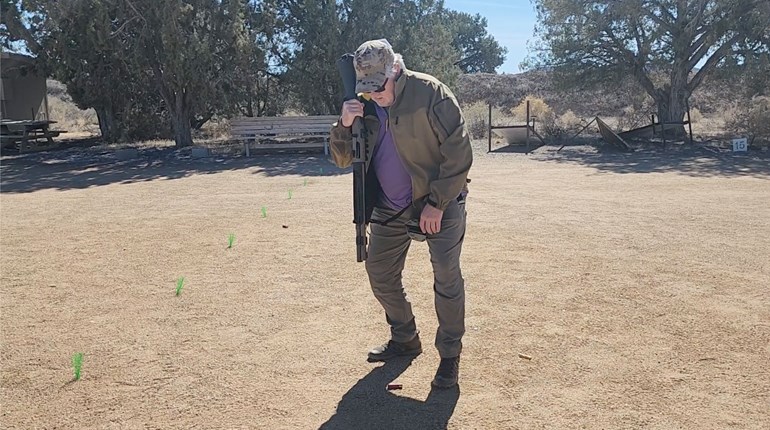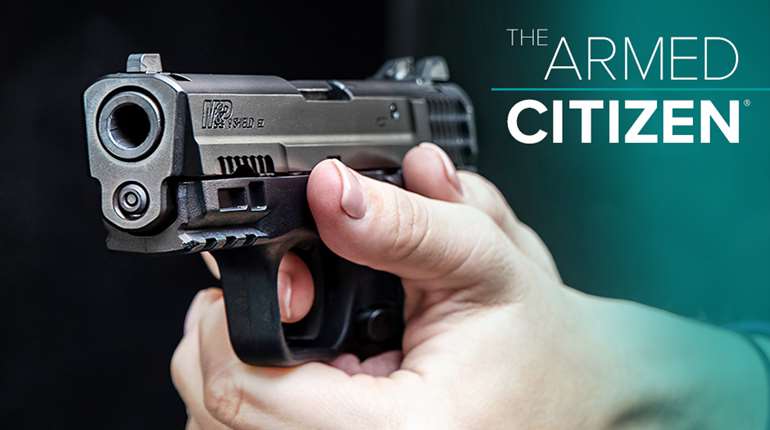
As a community focused on women’s safety and security, the concealed carry industry typically speaks about violence against women in the context of robberies, assaults, and attacks by strangers. This is the biggest crime-related fear of many women: the attacker who jumps out of the bushes, commits or attempts an assault, and then disappears back into the night. Thus we talk a lot about situational awareness, color codes, command voice and other ways of keeping yourself safe from this kind of violence, and all of this is wise, helpful advice.
Statistically speaking, however, attacks by strangers are rare. By far, the greatest threat of violence against women comes from someone the woman knows—usually her romantic partner or a former romantic partner. Consider the following statistics:
- According to the Bureau of Justice, in 2007, only 10% of female murder victims were killed by a stranger. 24% were killed by a spouse or ex-spouse, 21% by a boyfriend or girlfriend, 19% by another family member, and 25% by someone else they knew.
- The same data reveals that about two-thirds of all rapes and sexual assaults were committed by someone the woman knows, while data from an Arizona State University study gave an even higher number: 83% of women know their rapist.
- Only about 1 in 10 of all victims of stalking were stalked by a stranger.
- The World Health Organization estimates that globally, about 30% of women worldwide have been subjected to either physical and/or sexual intimate partner violence or non-partner sexual violence in their lifetime.
The fact is that, statistically speaking, you are in greater danger from the people you know than from strangers. If you are in a stable, loving relationship with a good person who treats you well, your chances of suffering from any sort of violence plummet. However, if you or your romantic partner display the following characteristics, your risk of suffering from intimate partner violence increases: a history of exposure to childhood mistreatment, lower levels of education, witnessing of family violence, antisocial personality disorder, harmful use of alcohol, and harmful masculine behaviors, including having multiple partners or attitudes that condone violence or ascribe higher status to men and lower status to women.
More specifically, if your romantic partner displays controlling tendencies, has difficulty communicating, has a history of exposure to violence, and/or expresses marital dissatisfaction, your risk of suffering from domestic violence goes up.
This is a delicate subject, and many abuse victims are emotionally manipulated to the point that they don’t recognize their own abuse. I don’t want to throw red flags where there aren’t any, because most people who display one or more of the signs listed above are able to handle their struggles appropriately without resorting to violence. But we want you to know that if you are asking yourself if you might be a victim of abuse, the fact that you’re wondering is a big clue that the answer might be yes. You can read much more about this at the Domestic Violence Hotline website, but consider if your partner calls you names or insults you; prevents or discourages you from going to work or school or seeing family and friends; tries to control where you go, what you wear or how you spend money; acts overly jealous; accuses you of being unfaithful; or gets angry when drinking alcohol or using drugs. These are all tell-tale signs of abuse that might or might not have already escalated into physical violence. If your partner threatens you with violence or a weapon; physically harms you, your children or your pets; forces you to engage in sexual acts against your will; or blames you for his violent behavior or tells you that you deserve it, you are already a victim of intimate partner violence.
We know this situation is fraught with complications, and although the answer is to leave the relationship, that’s not always as simple to do as it is to say. The longer you have been involved in an abusive relationship, the greater the toll it has taken on you. If you feel depressed, anxious, helpless or paralyzed, please know that these are completely natural reactions to what you’ve been through. This is not your fault, and you should never take the blame for violence inflicted upon you, no matter what your abuser says.
Getting out of an abusive situation can be dangerous and complicated, but you are worth it. Consider calling a women’s shelter or a hotline (800-799-7233) for advice. Before you leave, have a plan for where you’ll go and how you’ll get there, and if you’re able, pack an emergency bag you can grab and flee with on short notice. Make sure it includes important personal papers, money and prescription medications. If you are concerned for your safety, take precautions to protect your location and your communication. Change your email passwords, turn GPS off on your phone, and use a computer at a friend’s house or the local library if you suspect your home computer is being monitored.
Perhaps most importantly, seek help. In an emergency, call 9-1-1 or your local police. Also consider seeking help from friends, a pastor or spiritual leader you trust, your doctor, a local woman’s shelter (the hotline at 800-799-7233 can refer you to one), a counseling center or a local court if you feel a restraining order would be helpful and effective—they often are not, which is why protecting your location is important.
No one deserves to suffer abuse at the hands of an intimate partner or anyone else. If you are in an abusive relationship you’re having trouble leaving, call 800-799-7233 for advice and assistance.
Because most violence against women is committed by someone the woman knows, the absolute best way (statistically speaking) to avoid becoming a victim of violence is to only allow yourself to participate in healthy relationships and to be aware of the warning signs and risk factors listed above so you can get out of any unhealthy relationship you might find yourself in. Stay safe.














































